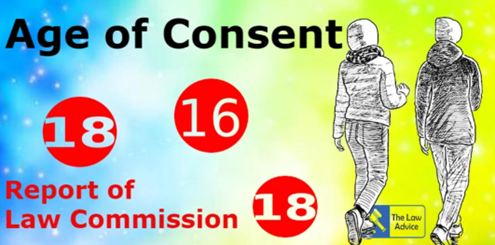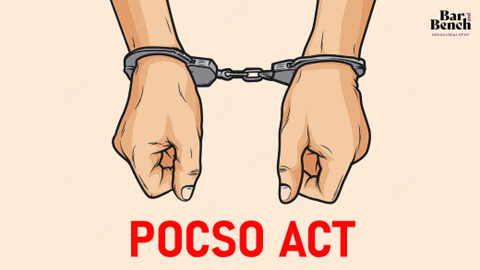Place the child at the centre
Law Commission recommendations on age of consent sidestep key question of how to protect the young from sexual abuse while ensuring they are not punished for consensual sexual activity with peers
Relevance
- GS Paper 2 Government policies and interventions for development in various sectors and issues arising out of their design and implementation.
- Tags: #ageofconsent #lawcommision #SC #fundamentalrights #democracy #upsc.
Why in the News?
The recent report from the Law Commission of India (LCI) regarding the age of consent under the Protection of Children from Sexual Offences (POCSO) Act highlights a missed opportunity to address critical issues concerning the protection of minors from sexual abuse while also preventing punitive measures against consensual sexual activity among peers.
Reviewing the Age of Consent Criteria
- The LCI report fails to address the urgent need to reevaluate the criteria for the age of consent, particularly in cases of statutory rape involving de facto consent.
- The enactment of the POCSO Act in 2012, raising the age of consent from 16 to 18, has resulted in an alarming increase in prosecutions involving non-coercive consensual sexual activity.
- This has disproportionately affected adolescents and youth, particularly those from marginalized backgrounds.
Mandatory Minimum Sentences
- Under POCSO and equivalent provisions of the Indian Penal Code, a mandatory minimum sentence of 10 years is imposed for statutory rape, irrespective of whether the minors involved are between the ages of 16 and 18 and whether there was consent.
Impact on Families
- A case highlighted in Veekesh Kalawat vs State of Madhya Pradesh (2023) emphasizes the devastating consequences of this mandatory minimum sentence, particularly on families.
- In this case, the incarceration of husbands as sole breadwinners disrupts and devastates rural families, leaving wives and children vulnerable to social exploitation when their parents and in-laws are unwilling to support them.
Diverse Positions on Age of Consent
- The LCI report outlines the historical evolution of age of consent laws and the divergent opinions surrounding POCSO.
- Some advocate for retaining the age of consent at 16 with close-in-age exceptions for consensual sexual activity between peers, while others favor the blunt increase to 18, as implemented by POCSO.
International Approaches
- The report also examines international approaches in countries like the United States, Canada, Japan, Australia, and South Africa, where lower ages of consent are coupled with close-in-age exceptions to shield adolescents from social stigma linked to consensual sexual activity.
Inadequate Stakeholder Consultations
- While the LCI report does acknowledge these international practices, it falls short in seeking input from crucial stakeholders such as public health experts, gynecologists, child psychologists, counselors, and shelter homes. These professionals serve as first responders and could provide invaluable insights.
Flaws in Proposed Mitigation
The LCI recommends retaining the age of consent at 18 but proposes judicial discretion for sentences less than the mandatory minimum of 10 years. However, this mitigation strategy has several flaws:
- The “close-in age” exception only applies at the sentencing stage, leaving consensual sexual activity between minors aged 16 to 18 as an offense.
- Introducing the term “tacit approval” to replace “consent” lacks a clear definition, causing confusion.
- The checklist of circumstances for exemption includes factors like social and cultural background, marital status, and family acceptance, potentially favoring socially conforming underage sexual relations.
Balancing Protection and Punishment
- While POCSO aims to protect young individuals from sexual abuse, it must also prevent them from facing shame, punishment, or incarceration for exploring age-appropriate sexual development.
The Role of CRC
- The Convention on the Rights of the Child (CRC) emphasizes placing the child at the center while recognizing that individuals under 18 require differential protection that aligns with their evolving capacities.
- CRC General Comment 20 calls for age-appropriate sexuality education, confidential medical counseling, and prohibits laws that criminalize consensual sexual activity among peers.
Impact of Criminalization
- Data in India demonstrates that criminalization disproportionately affects marginalized populations, particularly girls, subjecting them to further vulnerabilities.
- To quote Veekesh Kalawat (2023), criminalization often pushes unemployed survivors into desperate situations, such as prostitution or crime, as the state fails to provide essential support.
With the LCI report sidestepping these complex issues, the responsibility now rests with the courts to address them on a case-by-case basis, ensuring sensitivity, and maintaining an ongoing public dialogue. Protecting minors from sexual abuse is a universal imperative, and it is equally crucial to prevent their unjust shaming, punishment, and incarceration for exploring age-appropriate sexual development.
|
POCSO Act Overview
Key Features 1. Gender Neutrality 2. Reporting Encouragement 3. Explicit Definitions POCSO Rules 2020 Enhancements
|
|
Law commission of India
|
Sources: WCD, Indian Express, BBC.
Mains Question
“Discuss the challenges and implications of the Law Commission of India’s recommendations regarding the age of consent under the Protection of Children from Sexual Offences (POCSO) Act. Analyze the potential impact of these recommendations on the protection of minors from sexual abuse and the prevention of unjust punishment for consensual sexual activity with peers, while considering international best practices and the Convention on the Rights of the Child (CRC).”





